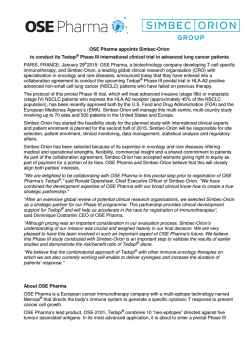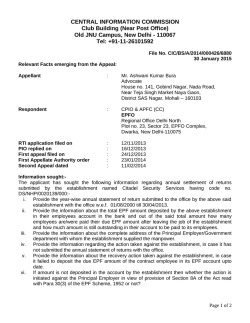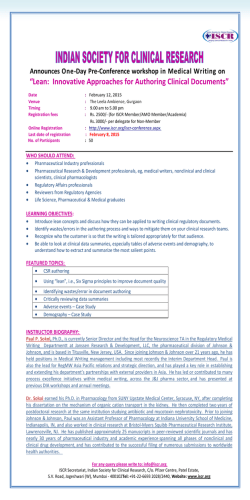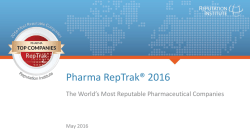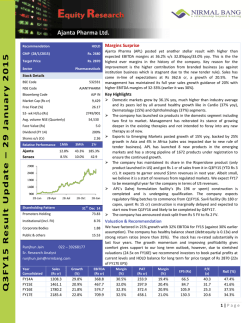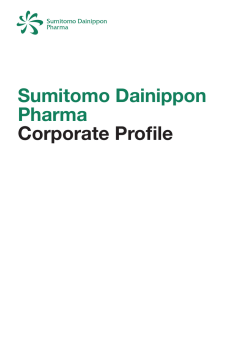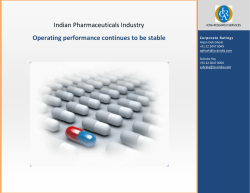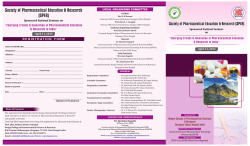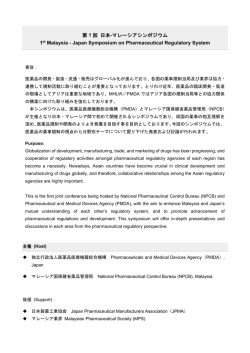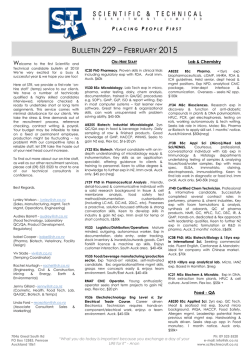
transcript - pharma disclosure
The new Pharma Disclosure Transparancy Rules: the good and the bad things By dr. Cees Smit, EPF/EGAN * Ladies and Gentlemen, Of course, there is no doubt at all that the European Patients’ Forum (EPF), the European umbrella group of more than 64 disease-specific and national patient groups in the EU welcomes today's launched set of rules on pharma disclosure. Just like we earlier welcomed the AllTrials initiative for more transparancy on clinical trials. And the same can be said for EGAN, the Patients Network for Medical Research and Health, a group focusing on genetic and most often rare diseases. A set of clear and open rules on the exact nature of relationships betwen pharma companies, physicians and health institutions definitely can contribute to the needed levels of trust between all parties involved, the public at large and especially consumers and more specific patients. Where industry's relationship with other professionals is just catching up, patient groups and EFPIA developed already much earlier in 2007 the EFPIA code of practice. This code of practice has helped to ensure transparency in the relationships between patient organisations and pharma and is regularly the topic of revision, for the last time in 2011. In this sense, it might also be useful to highlight the fact that patients and industry have a legitimate need to talk to each other - we have the diseases, they make the drugs, but we do so in the context of mutual respect and a strong framework that preserves the independence and autonomy of both parties. An important piece of work that the European Patients’ Forum was involved in in recent years is called the Guiding Principles for Good Governance in the Pharmaceutical Sector. This is actually a more overarching document that covers a series of general principles and core ethical values for all stakeholders. It is based on recognition by all participants of the need to go beyond bilateral relationships and to address the quintessential role of good governance in the pharmaceutical sector. EPF is currently in discussion with the Commission (DG Enterprise) and other stakeholders regarding the wide dissemination of these Guiding Principles. It might be useful to mention these practices especially, where individual patients and/or patient groups are regularly being criticized for their contacts with or funding by private companies. Or even worse, are being critized for being part of public-private partnerships, like within IMI, the Innovative Medicines Initiative. As has recently been the case with EUPATI, the European Patient Academy. Patient groups are most often more vulnerable for discussions on the exact source of funding than other parties. This is also due to the fact that there is a fundamental lack of government policies in the EU on how patient groups should be funded. This counts as well for the European Commission as for EU member States. There are two other concerns relevant mentioning here. The first is the strict application of the rules that prohibit patient advocates on national and international scientific congresses the entrance to the exhibition booth area of pharma companies. To our feeling, this is disproportionate and also quite meaningless as there are numerous opportunities for patient groups to meet with pharma representatives outside these congresses. The second concern is the fact that these measures are being developed without or almost without consultation of patient groups. At least, in the Netherlands, patient groups have at the moment no seat in the CGR, the Dutch Commission with regard to advertising and promotion on drugs where these measures are being discussed. There is a strong wish among a number of Dutch patient groups to be part of these discussions, whereas the Dutch Patient and Consumer Federation (NPCF) is more reluctant to take part in these discussions. Finally, as a patient representative with more than forty years experience I have to admit that when we want to regulate the relationship between health care professionals and pharma, we must not forget that it is maybe much more needed to regulate the often tight and most often very unclear relationships elsewhere in the health care sector. Like for instance, between government officials and patient groups; politicians and lobbying groups or between committee members and healthcare institutions. It is especially in these relationships that I have witnessed more often very incorrect or intransparant behaviour than in the disclosure of the relations we discuss today. Rotterdam, January 29, 2015 *Dr. Cees Smit is policy advisor of EGAN For more information: [email protected] and www.smitvisch.nl EPF, see www.eu-patient.eu EGAN, see www.egan.eu For information on the EFPIA code of practice on relationships between the pharmaceutical industry and patient organisations, initially approved in 2007 and amended by decision of the EFPIA General Assembly in June 2011, see www.efpia.eu For information on the Platform on Ethics and Transparency (DG Enterprise) http://www.eu-patient.eu/News/News-Archive/Guiding-Principles-for-ethicsand-tranparency/ http://ec.europa.eu/enterprise/sectors/healthcare/files/docs/outcomes_et_en .pdf
© Copyright 2026
